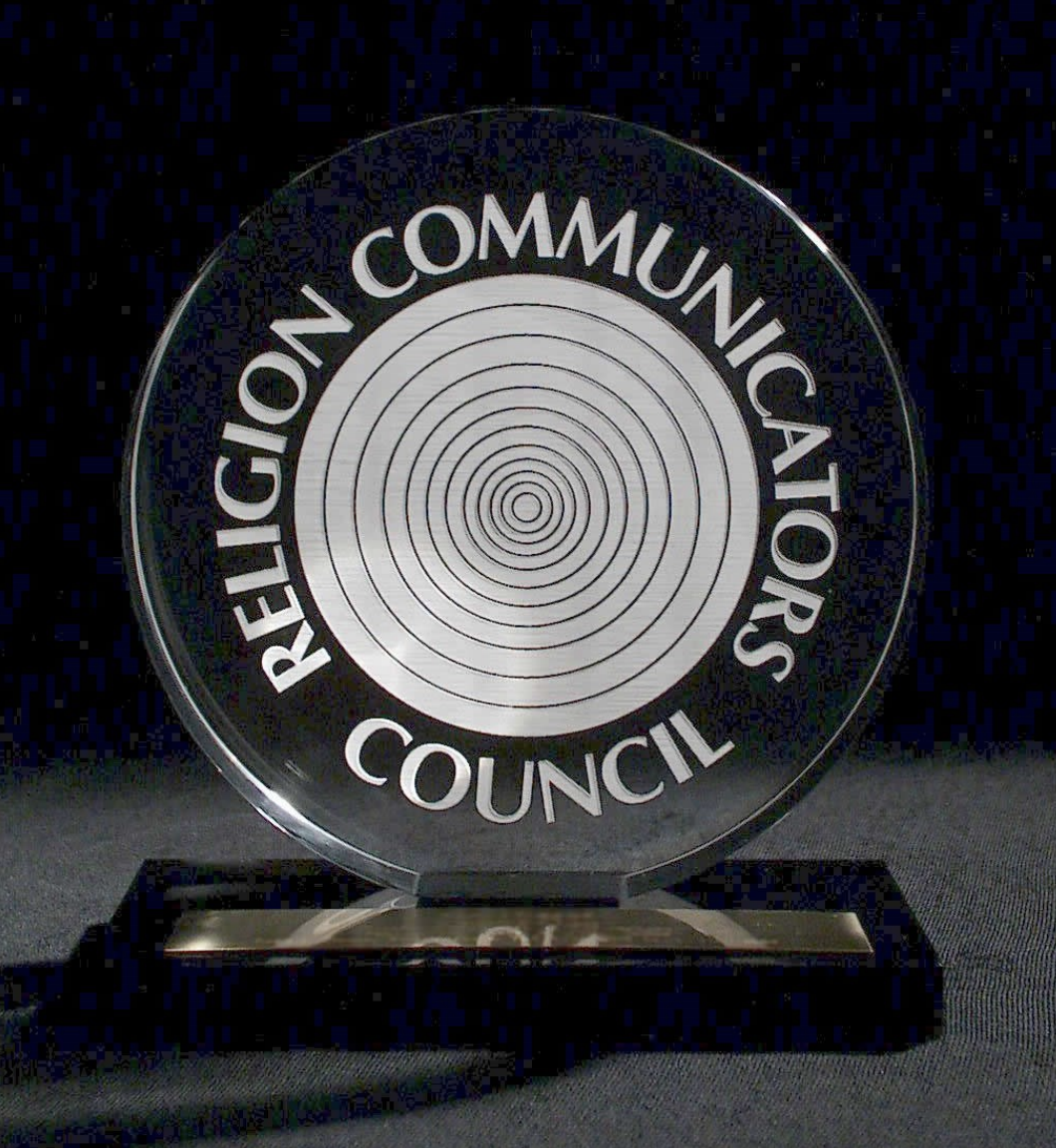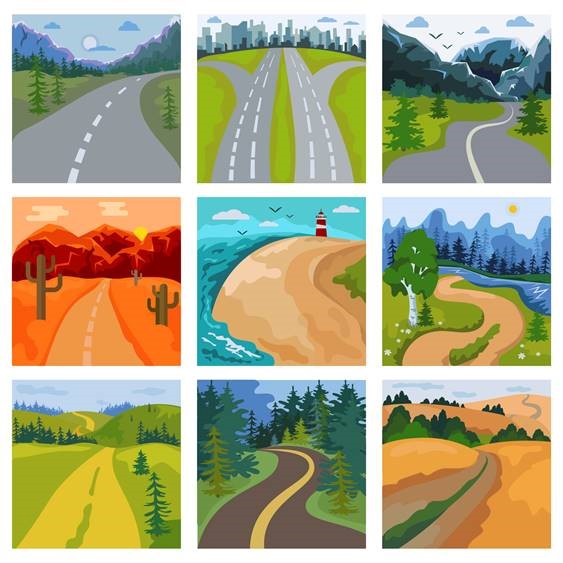
Baha’is find spiritual rewards
in minimalist living
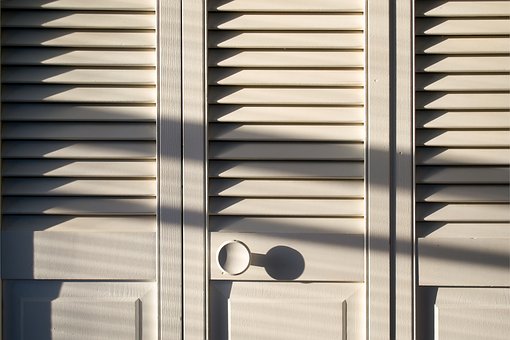 in minimalist living">
in minimalist living">
The Panes: living a decluttered life
As a couple, the Panes, Lucia and her husband of six years, Jeremy, have pared down their possessions over the past several years and say they are living ever more intentionally as time goes on.
“‘Abdu’l-Baha teaches us that we need to have moderation in all things,” Jeremy says of a lifestyle that they feel aligns with their Baha’i Faith.
“I have kind of always been into minimalism,” Lucia says. “I’ve always been a very organized and tidy person, even growing up. I don’t ever remember my parents asking me to clean my room. I like doing laundry and folding it and putting it away.”
According to Lucia, minimalism is “just having the things in your home or in your life that bring you joy or help you live your best life — and not holding on to all the extra.”
Lucia says that not having a lot of material possessions gives her more time to focus on other things and create a holistic Baha’i life.
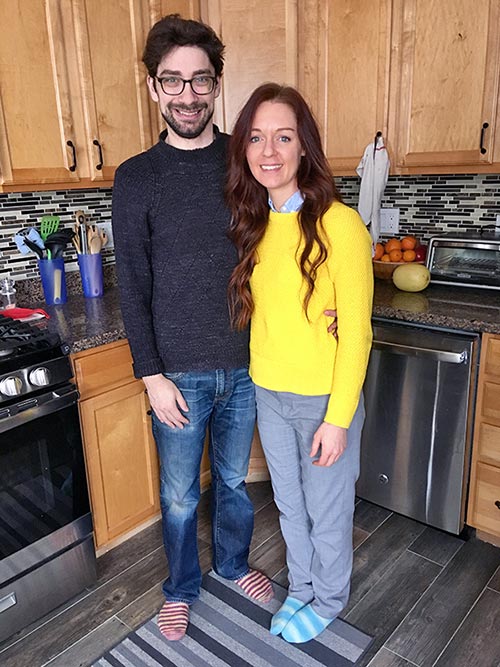
“It means I can do my workouts in the morning and have more time for prayer or reading. It means not having to frantically clean or put things away when people come over for a devotional gathering and that we have time to pick out prayers or readings. It means that we’re more relaxed when people come over.”
The Panes moved into a new condo in Skokie, Illinois, two years ago. “When we were looking for a new place to live,” Jeremy says, “we wanted to serve the community by providing space for Feasts [Baha’i community gatherings].”
“The Universal House of Justice [the international governing council of the Baha’i Faith] has been requesting for years now that we have deep and meaningful conversations with our neighbors and friends and co-workers, and it was important to us to find a space that would make that easier.”
“Our home is not only for us but also for others,” Jeremy says, “It is to be shared.” The Panes share their home by inviting people for devotional gatherings, board game nights and by hosting overnight guests.
The Panes say moving from a one-bedroom apartment to a two bedroom condo was a catalyst for getting rid of a lot of their belongings because they didn’t want to move them. Although Lucia spearheaded the couple’s decluttering, she says Jeremy likes the principle of not holding onto things unnecessarily.
“We’ve worked on only keeping things that serve multiple functions,” he says. “I think the only thing that we have that only does one thing is a waffle iron.”
“Because you cannot make waffles without a waffle iron,” Lucia adds with a laugh. “And we like making waffles.”
“I’m not focused on getting the latest phone or a new this or that. I don’t even pay attention to that stuff anymore. I haven’t really bought new clothes in a couple of years,” Lucia says. “I have no clue what’s in season for clothing. What’s in season for me right now is warm clothes,” she quips. “Not focusing on all those material distractions gives me more time to focus on my spiritual life.”
Lucia grew up in Hawaii in a Baha’i family that fostered spare living.
“My parents lived in a geodesic dome house, which looks a little like half of a golf ball. It’s made of 96 triangles and there are no corners. No basement. No attic. No place to hide things.”
“My dad grew up in the ‘70s in the Czech Republic, a communist country where you held on to everything and you used everything because you just couldn’t get things. You were very creative with how you used and reused things.”
“One of the older Baha’is in my community growing up used to joke that you can’t take a U-Haul to heaven and that’s always stuck with me,” she relates. “Don’t get attached to your material things because you can’t take them with you.”
Lucia attended college on the mainland in California and was conscious of paring down supplies she was bringing back and forth.
“If you load your trunk up and drive to college two hours away, it’s a different experience,” she says. “I started out with very little and just accumulated stuff while I was there.”
And although tidiness wasn’t on Lucia’s list of what she was looking for in a mate, she says it probably should have been. “We’ve definitely had some discussions about it — what my standard level of tidiness is and what his standard level of tidiness is — and they don’t always match.”
“You spend a lot of time learning about the person that you’re married to and the consultations we’ve had is really about the specifics, the nitty-gritty, of those core belief systems,” Jeremy says. “We’ve had some hard conversations about what the household could bear” in terms of convenience and caring for the environment. Owning a car is an example of a concession they’ve made.
“It would be much more environmentally conscious for us to give it up entirely,” Jeremy says. “We really have to do a very good job in scheduling to see who gets to use it.”
Lucia says having a decluttered home also helps her to control some of her feelings of anxiety. “Sometimes feeling closed in makes me feel anxious,” she says. “I was feeling like there was just too much stuff around. There was stuff on the table. There was stuff in the corner. There was stuff that we hadn’t unpacked after our move. And I finally just said, “Why are we keeping all this stuff?”
As an outgrowth of paring down their possessions, Lucia discovered the “zero waste” community online.
“Zero waste is about lessening your impact on the environment. It’s not about creating no waste at all, but minimizing your waste. Like minimizing your possessions, you minimize the amount of trash that you produce on a daily basis.”
“For me, plastic in the ocean is a huge issue,” Lucia says, “because I grew up on an island, taking care of the ocean—and taking care of the Earth—has always been important to me.”
“We’ve had some very dire warnings from our scientific community about the effect that humanity is having on the planet,” Jeremy says.
“Jeremy and I have become more conscious about what we’re consuming. Who is making our clothing? How are they being treated? Are they being paid a living wage? And are they made from sustainable resources? Because you do vote with your dollars,” Lucia says.
Jeremy paraphrases a quote from the Baha’i writings to explain how we might view the issue: “If the Earth is one country and mankind its citizens, then we ought to treat all of humanity in a way that supports and sets up ways for people to make a livelihood.”
“If we’re all one human family,” Jeremy asks, “how is taking advantage of our brother, or how is taking advantage of our cousins helpful? It’s not.”
“A big thing rather than buying more is buying better,” Jeremy says. “That’s another thing that relates to minimalism. Instead of having more things, you just have better quality things.”
“And,” Lucia adds, “it’s feeling more connected to people around the world who make the products that we purchase.”
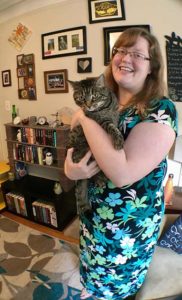 Like this topic? LISTEN TO ANOTHER STORY
Like this topic? LISTEN TO ANOTHER STORY
Corinne Herrmann: “Living what I believe”
In this audio interview, Chicagoan Corinne Herrmann, a university Math instructor and member of the Baha’i Faith, chats with Editor Joyce Litoff about the spiritual rewards of pursuing a minimalist lifestyle.


